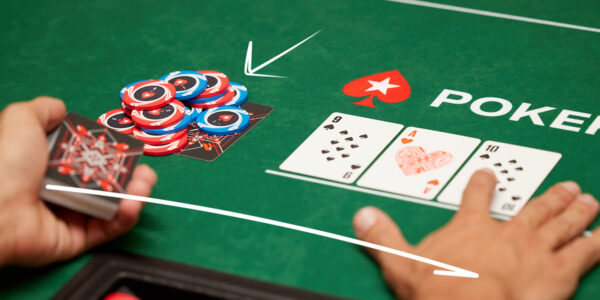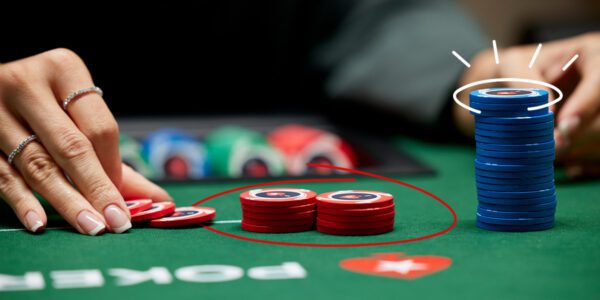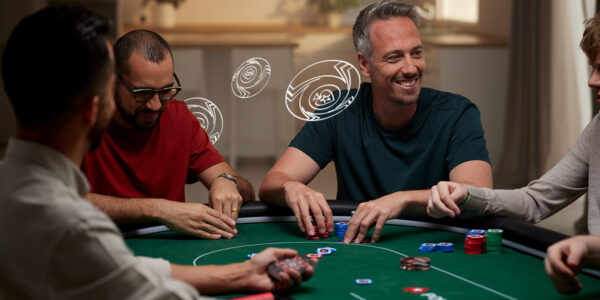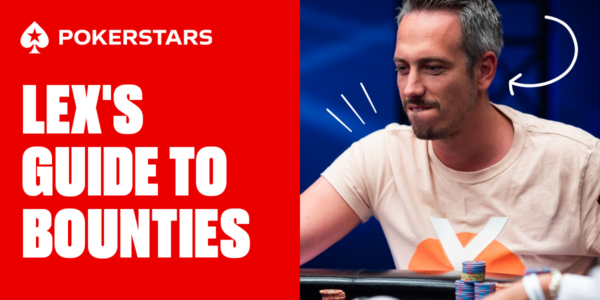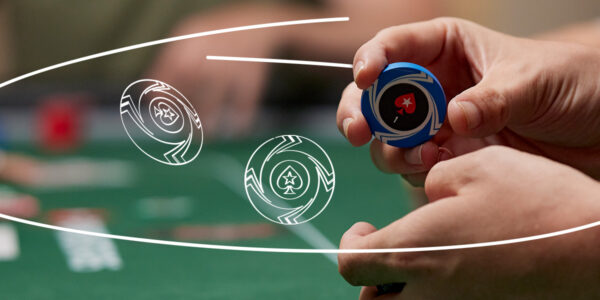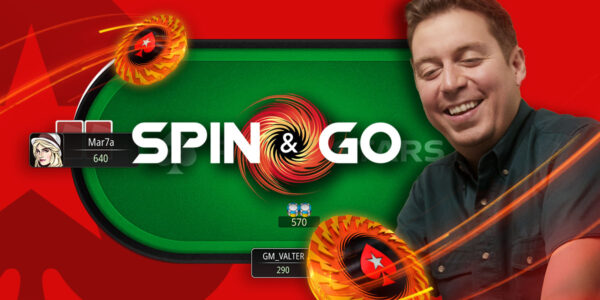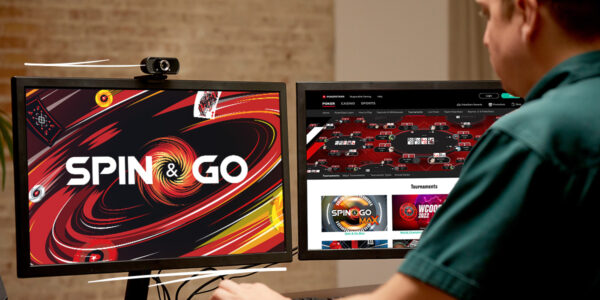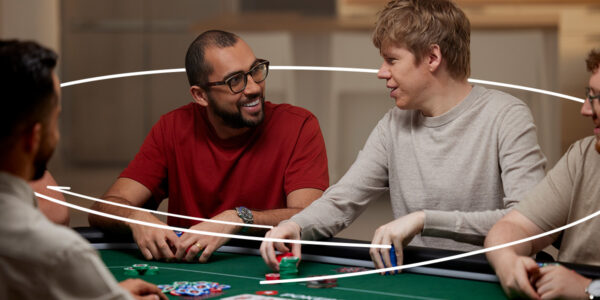Relying on Luck in Tournaments
Players who simply rely on luck in tournaments have no real chance for long term success. I know what you’re thinking. *I* don’t rely on luck in tournaments! I see those crazy players calling with junk, raising with junk, chasing bad draws with bad odds, and punting off their stacks! I’m nothing like those pure luck players! I’m patient. I wait for good hands. You won’t catch me chasing a draw with bad odds or going all in with a suited king-rag. When I go all in I have the best hand unless I get coolered with kings versus aces!


It’s true… playing wild and crazy with no tangible plan, no rationale, and simply clicking buttons seemingly randomly is relying on pure luck and certainly not a path to tournament success. But there’s another, less obvious form of this in tournaments. If the first paragraph sounds like something you might say, then this article is talking to you.
The reality of tournament poker is that the blinds and antes escalate at certain intervals, and in most tournaments live and online, those intervals shorten your stack faster than big hands come along. The end result of this reality is that it’s essential to find ways to accumulate chips without big hands. There are various plays and methods to try to do this, but to do it well you have to target the plays properly. These are topics we’ll discuss in the future.
If you’re simply playing tight, waiting for premiums, and unwilling to get involved with more marginal holdings or invest many chips without “the goods”, where does that leave you? Sometimes you run well, go on a heater, and run up a stack. Most of the time that doesn’t happen though. So you sit patiently, waiting for your good hands to come, hoping you’ll get some action on them, and they hold up. The blinds increase, antes kick in, and you rapidly find yourself being one of the shorter stacks at the table.
I railed a player recently who is not a winning player. They have a reputation for playing a very tight game, waiting for hands to commit chips. They didn’t know I was railing, and were just doing their usual thing. The cards were not coming their way however, and the blinds continued to erode their stack. They literally blinded down to 3BB before picking up AK and getting it in. They won the hand. A couple orbits and new blind level later and they were right back to the blinding all in zone. They got lucky a few times during this short stack journey to the money, either picking up the occasional big hand, or being blinded all in and hitting a board enough to stay alive for another orbit. Eventually they picked up a premium, shoved, and got busted by some inferior hand in the big blind position who was priced in to call because they didn’t have enough chips to make that player fold. They got paid, by virtue of getting lucky several times as a micro-stack, but it was painful for me to watch.
I’ve talked with this player about tournament strategy before, but it was apparent they’d not taken it to heart. I’ve worked with students who emulate this behavior, and talked about it frequently in my live training days for the school. The players of this genre will insist they play like this because they refuse to rely on luck. The problem that eludes them however is what they are doing actually is leaving their fate up to pure luck.
Think about it. What does their tight/conservative strategy entail? First, they wait for only strong starting hands, something which is fully dependent on luck in terms of how frequently we’ll get randomly dealt them in a tournament. When they get a premium, they tend to overplay it, costing themselves value against worse holdings they force out, while paying off better holdings more than they should. Once the structure overtakes their stack and makes them short, they continue to cling to the hope they’ll get a “real hand” soon so they can put the chips in and hope to hold up. When that real hand doesn’t come, they allow themselves to get blinded down so short that they no longer have any fold equity to leverage and simply have to win a showdown to stay alive. When you think closely about it, this is a strategy based on pure luck, disguised by the fact that the player is only “playing strong starting hands”… but make no mistakes, this isn’t skill… it’s actually relying on luck. Hoping we’ll be lucky to get that next premium holding sooner rather than later, hoping those premiums hold up and making good chips, and hoping we’ll get lucky when blinded down to a micro-stack with no utility and no fold equity. They are placing their fate in the cards they receive and the boards they get, and thus are actually relying on luck rather than skill.


Take your fate into your own hands. There’s a reason why push/fold charts widen considerably under 10bb’s effective. There’s a reason why strong MTT regs who build up-sloped graphs are tangling in pots occasionally without premium starting hands. Sometimes a move won’t work out. Sometimes we’ll get caught. It happens. When we are focused on accumulating chips, staying ahead of the escalating blinds, and identifying spots where we can attack profitably without a top tier starter, now we are proactively trying to win. The good hands will still come. But now, we’ll be more likely to have a bigger stack when they do arrive. And we’ll have an image to those paying attention that’s harder to read, because we’ll have a more reasonable range of hands rather than just the premiums, which makes us easier to read and exploit.
Try taking a proactive approach to your tournament strategy. That’s actually what playing skillfully is all about. Taking a reactive, wait for the goods approach is simply relying on pure luck, just as much as the button clicking loose fish that splash around chips way too wide and punt on the regular.



